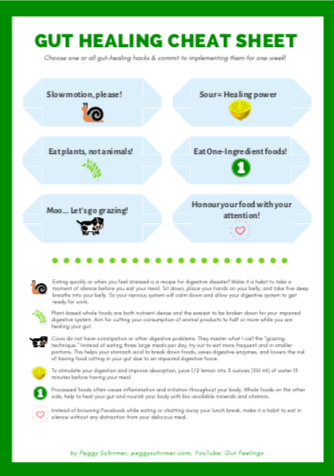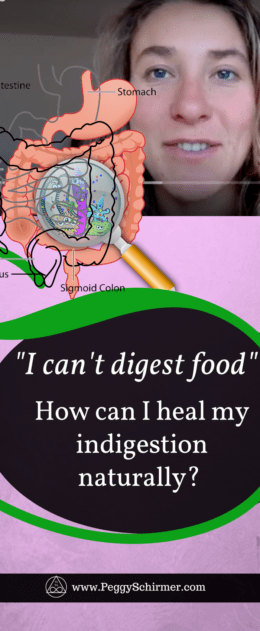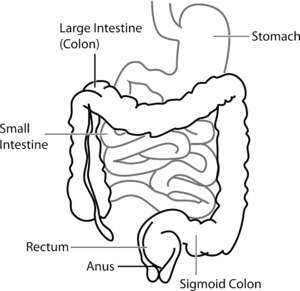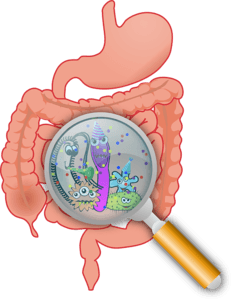“I can’t digest my food.” “I am allergic to almost everything: dairy, gluten, fruits, nightshades, legumes, nuts, fill in the blank…” Sadly I hear desperate voices about digestive problems and pain from indigestion on a daily basis.
The good news is that if you read this you are likely one of those who are ready to heal their body. Maybe you’d like to know what is happening inside your body? Or you look for what best steps to take forward so your body can find its balance back and you’ll be able to enjoy a calm and smooth digestion.
If you’ve been reading already a lot about digestive problems and are ready for some new stuff that actually works, I am excited to have you here.
In the next few minutes, you’ll learn what simple, but powerful steps I suggest you consider to take to turn your digestive health around. I wish you that you can enjoy eating food again without the fear of what happens 10 minutes after eating it.
The first paragraphs are for the newbies, sharing the basic of indigestion and what symptoms are typical for an impaired digestion. Please feel free to graze and scroll down if you are ready to go straight into action.
What is indigestion?
Do you remember the last time you’ve ate something and had the feeling your meal just lies like a stone in your stomach? Maybe it was causing you not only discomfort but even pain for hours after eating it. The official name for this group of symptoms is dyspepsia. Dyspepsia essentially means “difficult to digest” and is often used as a synonym for indigestion.
Indigestion can also show itself as a burning pain behind in your chest, behind your breastbone. Most people know the symptom by the name heartburn.
Pain in chest, heartburn and other common symptoms
Before we dive into what likely causes your digestive problems, let’s take a short look at what other symptoms related to indigestion you might experience.
- belching with or without acid reflux
- feeling heavy and tired after eating
- feeling quickly full even after just eating a little
- flatulence
- bloating
- feeling sick (nausea)
- vomiting
The truth is our digestion is highly complex and we actually do not know a lot (or enough 🙂 about what really happens deep down in the dark of our intestines.
What causes indigestion?
The best way to see indigestion or dyspepsia is as the mother of all digestive problems. Therefore symptoms like heartburn, bloating or even pain before or after eating usually are a warning sign for an underlying condition in your body. Our bodies tell as clearly when they are in trouble, the only question is: Are we listening? And are we taking action to support the body to heal? Or do we just try to cover the symptoms and by doing so putting even more pressure on our system?
The traditional school of thought sees indigestion caused by the following conditions:
- Stomach infections (e.h. Heliobacter pylori)
- Irritable bowel syndrome
- Ulcers
- Duodenitis and gastritis (inflammation of duodenum or stomach)
- Acid Reflux (GERD)
- Stomach cancer
- Hiatus hernia
- Celiac disease
Not primary related intestinal causes for indigestion are:
- Medications (most pharmaceutical drugs have a negative impact on our digestion, e.g. ibuprofen, antibiotics, estrogens)
- Diabetes
- Thyroid disease
- Chronic pancreatitis
- Pregnancy
- Severe kidney disease
- Overactive parathyroid glands (hyperparathyroidism)
- Emotional instability (anxiety, depression)
This list could go on and on. Our digestion is at the centre of our health. If this part is out of balance, often way before we have the first symptoms occurring, then our overall wellbeing, health and energy level will suffer.
What makes indigestion worse?
There are a few factors that are commonly agreed that worsen our impaired digestion:
- Stress, both emotional and physical (fatigue)
- Lack of sleep
- Alcohol
- Smoking
- Obesity
- Overeating or eating too fast
What are the common treatments and recommendations? How does modern medicine approach indigestion?
Well, nothing surprising really: Diagnosis and then medication.
If you go to your GP and if you’ve got a good one, he or she is likely to do several tests with you: blood and stool tests are the most common. Additionally, your stomach and upper abdomen might become an X-ray to exclude more severe conditions like cancer and ulcers.
A more invasive diagnostic method is the endoscopy. During this procedure, an endoscope (flexible tube with a camera take pictures from inside of your body) is first swallowed and then pushed through your intestines.
Often this procedure hurts the already sensitive intestinal lining, possibly causing micro-injuries and small intestinal bleeding.
After excluding all severe causes like e.g. stomach ulcer or cancer, you’ll likely get a prescription for an antacid. These anti-acid drugs do exactly that, they make the stomach less acid. By doing so the pain associated before after or during eating will ease off. This is a classic short-term success from modern medical treatments. It eases your symptoms and makes you feel better in the moment. What you do not immediately feel is the price your body needs to pay in return.
Whenever you take a drug to change your body’s chemistry, you can be almost certain that there is a backlash.
In this case, changing the acidity of your stomach through antacids is just the top of the iceberg. The negative impact antacids have on your intestines, the way you can digest food, fight off pathogens and how you can absorb the goodies (vitamins, minerals, etc.) from your food is worth another article. “Funny” enough antacids lead to even more indigestion.
Ten simple things to improve your indigestion quickly
- Count and chew 50 times before swallowing. This tip is especially useful for the fast and stress eaters. Don’t worry: You do not need to count chewing every bite until the rest of your life. It’s about establishing a new habit. Once you changed your fast
- Drink OR eat. If you drink while you eat you make it so much harder for your digestion, as more digestive enzymes, more bile from your liver and more time are needed to properly break down the food.
- Lower your fat intake by minimum 50%. Fat is the hardest to digest for your body and takes the longest. For an impaired digestion you want to give your liver (bile production) and your stomach a break.
- Eat raw ginger – three times a day to lower the inflammation in your intestines and to help with nausea.
- Peppermint tea – helps your intestines to relax, has anti-viral and anti-bacterial properties and tastes great.
- If you feel stressed, don’t eat! A good way to change this habit is to go for a herbal tea and drink lots of it when you are stressed and feeling hungry. The tea will give you a feeling of “being full” for a short while and it helps you calm down.
- Avoid drinking coffee – and other caffeine sources (black tea, chocolate etc.) – Coffee is highly acid and it’s caffeine reacts aggressively with your soft intestinal lining supporting discomfort and inflammation.
- Avoid: Alcohol, smoking, processed foods, dairy, corn, soy and grains (start with a week and you’ll see its effects!)
- Stop eating 3-4 hours before bed. So your digestion doesn’t need to work a late-night shift and your hardworking organs, e.g. your liver and kidneys, can do their best job to cleanse your body while you sleep.
- Eat raw fruits and veggies – as many as possible. They do not only contain lots of healthy fibre that is great to lower inflammation but do come (if raw) with their own digestive enzymes. These make sure your digestion doesn’t need to work so hard. So you’ll save your precious bile and own enzymes.
If this sounds all too much to do, have a look at the video tutorial below.
It’s a short guide to help you improve your gut within one week. We go through three actions steps that are easy to implement even in your busiest days.






